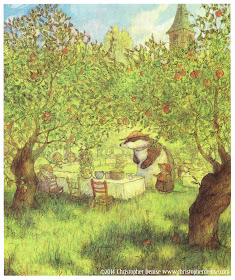Dear Friends:
Here are the birthdays and special days for the first week of February. I hope that you take a look at the features on Through the Looking Glass that celebrate these days on the pages of books.
The Lunar New Year begins on the date (in East Asia) of the second new Moon after the winter solstice, which always takes place in late December. This means that the first day of the Lunar New Year can occur anytime between January 21 and February 20. In 2022, this new Moon occurs in China on Tuesday, February 1, marking the start of the Lunar New Year.
The traditional Chinese calendar is a lunisolar calendar, which means that it is based on astronomical observations of the Sun’s position in the sky and the Moon’s phases. This ancient calendar dates back to 14th century BCE (whereas the Gregorian calendar was introduced in 1582). The Chinese lunisolar calendar shares some similarities with the Hebrew calendar, which is also lunisolar, and it has influenced other East Asian calendars, such as those of Korea and Vietnam.
Because the Chinese calendar defines the lunar month containing the winter solstice as the 11th month, Lunar New Year usually falls on the second new moon after the winter solstice.
Just like New Year according to the Gregorian calendar (January 1), Lunar New Year celebrations start on the night before the first day of the new year.
Although this holiday has commonly been called “Chinese New Year” in the West, China is not the only country to observe it. Lunar New Year, also known as the Spring Festival, is the most celebrated and longest of all Asian festivals, and is observed by millions of people around the world.
A number of other countries in East Asia, including Vietnam, Korea, Japan, and the Philippines, hold their own new year celebrations at this time. (Occasionally, the date celebrated may differ by one day or even one moon cycle due to time zones and other factors.)
As with many winter solstice celebrations, the symbolic darkness of night is banished by the light of fireworks, lanterns, and candles. Man-made paper lanterns are hung by the hundreds in public areas, bringing good luck to the new year.
There are dragon dances, performances, and festival parades with music and acrobatics. The festivities continue for two weeks, finishing with a special lantern festival, which signals the end of the New Year celebration period.
In 2022, we ring in the Year of the Tiger, one of 12 animals in the Chinese zodiac. The animal designations of the zodiac follow a 12-year cycle and are always used in the same sequence.
James Mercer Langston Hughes (February 1, 1901 – May 22, 1967) was an American poet, social activist, novelist, playwright, and columnist from Joplin, Missouri. One of the earliest innovators of the literary art form called jazz poetry, Hughes is best known as a leader of the Harlem Renaissance. He famously wrote about the period that "the Negro was in vogue", which was later paraphrased as "when Harlem was in vogue."
Norman Rockwell (February 3, 1894–November 8, 1978) was an American painter and illustrator best-known for his Saturday Evening Post covers. His paintings depict real American life, filled with humor, emotion, and memorable faces. Rockwell shaped the face of illustration in the mid-20th century and with his prolific body of work, it's no wonder he's called "America's Artist."
Rosa Parks (February 4, 1913–October 24, 2005) was a civil rights activist in Alabama. When she refused to give up her seat on a Montgomery bus to a white person her case touched off the Montgomery Bus Boycott and was a significant milestone in forcing the Supreme Court to end segregation. She once said, "When people made up their minds that they wanted to be free and took action, then there was change. But they couldn't rest on just that change. It has to continue." Parks' words encapsulate her work as a symbol of the Civil Rights Movement.
Charles Lindbergh (February 4, 1902 - August 26, 1974) is known as the first aviator to complete a solo transatlantic flight, which he did in his plane, Spirit of St. Louis. In 1932, his 20-month-old son was kidnapped. The Lindberghs paid the $50,000 ransom, but sadly their son's dead body was found in the nearby woods weeks later. The events made world news and added to Lindbergh's fame.
Baseball icon Babe Ruth (February 6, 1895 - August 16, 1948) set numerous records as a pitcher and slugging outfielder. He was among the first five players inducted into the sport's Hall of Fame. Over the course of his career, Babe Ruth went on to break baseball's most important slugging records, including most years leading a league in home runs, most total bases in a season, and highest slugging percentage for a season. In all, Ruth hit 714 home runs—a mark that stood until 1974.
Charles Dickens (February 7, 1812 - June 9, 1870) was a British novelist, journalist, editor, illustrator and social commentator who wrote such beloved classic novels as Oliver Twist, A Christmas Carol, Nicholas Nickleby, David Copperfield, A Tale of Two Cities and Great Expectations. Dickens is remembered as one of the most important and influential writers of the 19th century. Among his accomplishments, he has been lauded for providing a stark portrait of the Victorian-era underclass, helping to bring about social change.
Pioneer and author Laura Ingalls Wilder (February 7, 1867 - February 10, 1957) wrote the semi-autobiographical 'Little House' book series. She published Little House in the Big Woods, the first of her well-known Little House series in 1932. Wilder finished the last book in 1943.
















